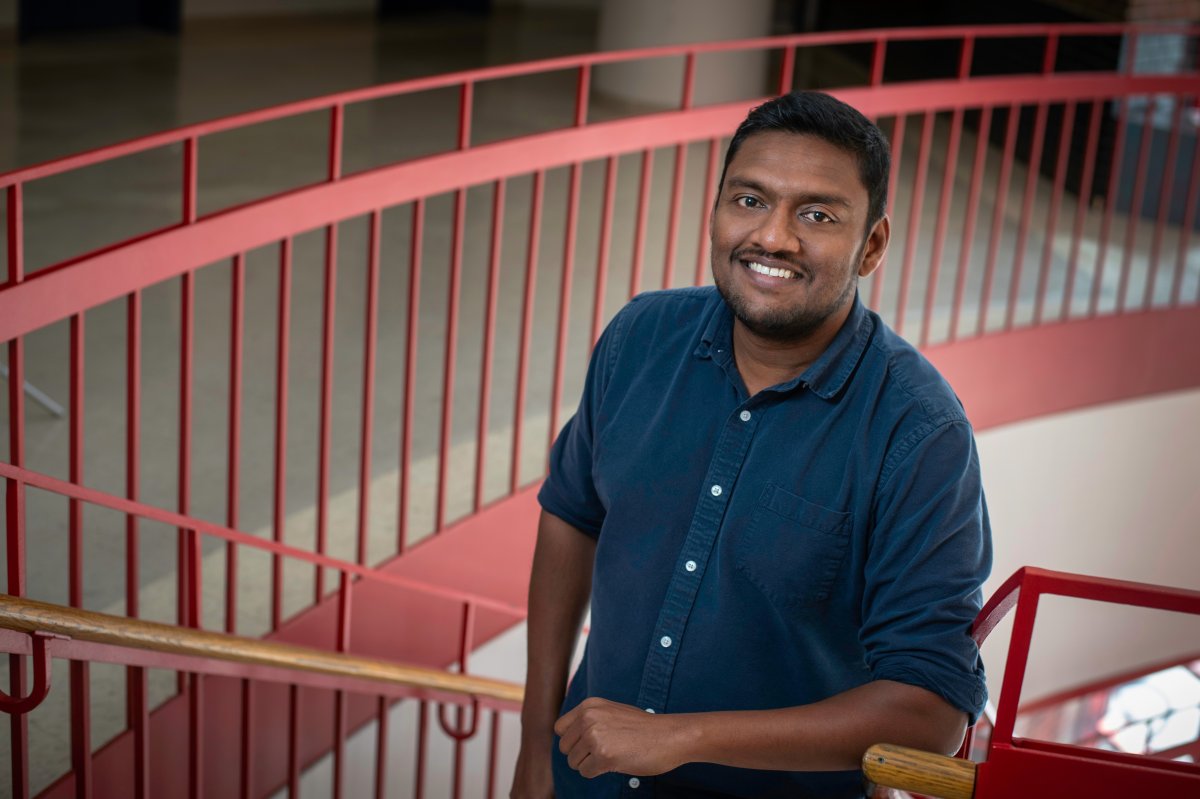Yoga Varatharajah Combats Clinician Burnout with Artificial Intelligence

In our ever changing digital world, artificial intelligence (AI) is everywhere. It helps people find the best route to work, suggests new products to buy, and advises on financial investments. While tools like ChatGPT allow the public to use AI for various tasks, computer scientists around the world are hard at work applying AI to some of the most critical problems in society. At the University of Minnesota, Department of Computer Science & Engineering (CS&E) Assistant Professor Yoga Varatharajah is developing AI tools to combat clinician burnout in the medical space.
“If you look at the healthcare system these days, there are a lot of things that clinicians have to do that they are overqualified for, like reading scans and writing reports for them,” said Varatharajah. “This leads to a lot of burnout which can cause errors in clinical decisions, and it takes away the valuable time that could be spent with patients. On top of that, there is a huge shortage of clinicians in the country. So the question I am broadly interested in is, how can we harness the recent advances in AI to improve this problem?”
Working with clinicians at the U of M Medical School and Mayo Clinic, Varatharajah aims to develop AI methods to help interpret tests, optimize treatment decisions, and improve patient outcomes. Specifically, he is working on several clinical applications in the neurological space, such as epilepsy, Alzheimer's, Parkinson’s, and psychiatric illnesses. Using data from brain signals and brain images, he develops novel AI techniques to more accurately interpret these complex tests and provide actionable insights.
“Supervised learning, where AI models are trained based on data labeled by experts, has been the predominant methodology in AI for a very long time,” said Varatharajah. “Recently there have been developments in self-supervised and generative models that can learn from the data itself without requiring a lot of expert labels. Clinicians already have enough to deal with, and it is time consuming and expensive to have them also look at data points to help with labeling. These new techniques can help circumvent that issue. We are hoping that more and more advances in AI can improve medical AI applications even further.”
Prior to joining CS&E in fall 2023, Varatharajah collaborated with the Mayo Clinic during his Ph.D. program at the University of Illinois Urbana-Champaign. His work tackles methodological challenges in data science and AI, such as scarcity of curated data, labeling inconsistencies, predictive uncertainty, model robustness, explainability, and multi-modality.
“The field of AI is rapidly evolving and has really fueled the interest from the medical community,” said Varatharajah. “This has enabled a lot of hospitals to be more open to working with computer scientists who can utilize their data to improve clinical workflows and draw out meaningful insights. However, there is also a lot of concern about whether we can trust AI models in this space and other safety-critical applications like self-driving cars and law enforcement. We are working really hard on the trustworthiness issue in AI applications for healthcare - particularly, we are focusing on how we can leverage our understanding of the data and the domain to anticipate and prevent the failures of AI models when they are deployed in the real world.”
Learn more about Varatharajah’s work on his personal website.